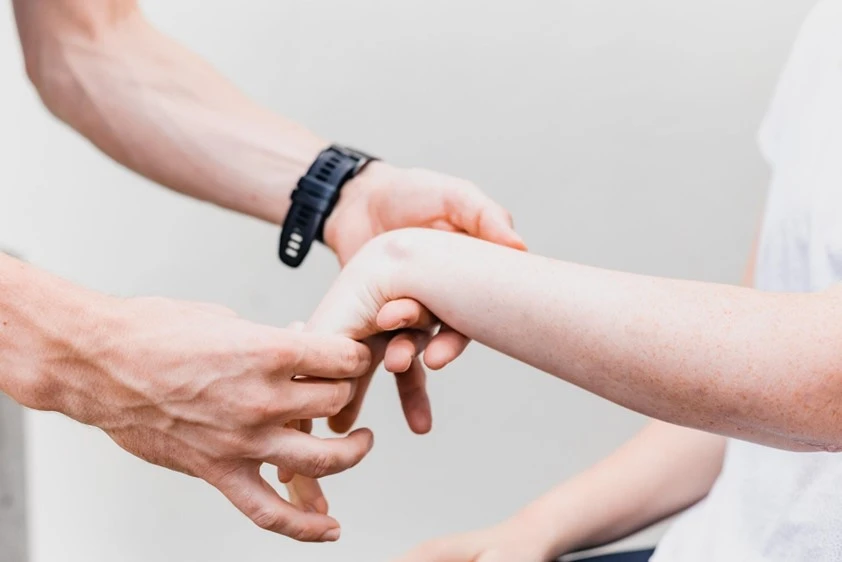Allied Health Recovery Requests: Everything You Need to Know
By Renato Parletta
- October 6, 2023
Table of Contents

Allied health recovery requests are one of the many important documents that healthcare experts deal with on a regular basis.
Allied health professionals weave together the many threads of patient well-being with expertise and compassion. These dedicated individuals, from physical therapists to respiratory therapists, form the backbone of the healthcare system. They contribute significantly to holistic and high-quality patient care. Allied health workers play a pivotal role, not only in the recovery phase but throughout the entire healthcare journey.
Vital documents are central to the day-to-day operations of the average allied health worker. Allied health recovery requests (AHRR) are one of these important pieces of documentation. These requests help to gain permission and guide allied health practitioners to deliver care to their patients, tailoring interventions and strategies with precision.
In this article, we delve into the realm of allied health recovery requests, exploring the significance of these documents and the indispensable role they play in delivering exceptional healthcare. Join us in unravelling the layers of allied health, where expertise meets empathy, and recovery is not just a goal but a collaborative journey.

What is an allied health recovery request?
An allied health recovery request is a form initiated by healthcare professionals who are requesting approval to provide certain treatment for their patients. They must submit it to the insurer or similar body and will generally fill the form out with their patient.
The recovery request becomes the conduit through which healthcare professionals and their patients articulate their specific needs for allied health services. It is a personalised plea that resonates with the unique circumstances and requirements of the requester. This bespoke nature distinguishes the allied health recovery request from standardised medical procedures, marking it as a dynamic and individualised approach to healthcare.
The purpose and significance of an AHRR form
Allied health recovery requests stand as a testament to the evolving landscape of healthcare, acknowledging that healing extends beyond the confines of a clinical setting. The purpose is twofold: to address the individual needs of individuals requiring allied health services and to bridge the gap between medical necessity and the provision of comprehensive care.
Individuals who find themselves in need of physical therapy to regain mobility, speech therapy to overcome communication barriers, or occupational therapy to enhance daily functioning, may initiate a recovery request. The significance lies in recognising that optimal health encompasses not only the absence of disease but the restoration of one’s ability to lead a fulfilling and functional life. A healthcare professional will help the patient or individual to fill out the forms.
Customising care
One of the distinctive features of an allied health recovery request is its emphasis on a tailored treatment journey. Each request contains a unique story that unfolds through the lens of an individual’s health journey. By tailoring allied health services to the specific needs outlined in the request, allied healthcare professionals can offer interventions that align with the specifics of the patient’s condition. This gives the patient a much better chance of a swifter and more successful recovery.
Moreover, the customisation of the healthcare plan in question extends to the efforts of a range allied health professionals. It fosters an environment where physical therapists, speech pathologists, and occupational therapists work together effectively. This allows all kinds of allied health professionals to create a comprehensive and collaborative approach to recovery.
It’s clear that the AHRR process is more than a formality or a document; it is a lifeline, connecting patients with the allied health services essential for their unique journey toward rehabilitation and a better quality of life.

What are the aims of an allied health recovery request?
Allied health recovery requests are instrumental in dismantling the traditional boundaries of healthcare. They open avenues for tailored interventions that address the multifaceted dimensions of well-being. Ultimately, they aim to allow healthcare professionals to deliver specialised care across the board.
First and foremost, the significance lies in recognising that health and healthcare are not monolithic concepts. It extends beyond the absence of illness to encompass the restoration of function, independence, and overall quality of life.
By articulating their unique requirements, individuals and professionals can coordinate a team of allied health professionals—physical therapists, occupational therapists, and more. This collaborative effort ensures that the sum of these healthcare components is greater than its individual parts, creating a comprehensive strategy for recovery.
In essence, Allied Health Recovery Requests serve as a conduit for empowerment. They empower individuals to voice their needs, preferences, and goals in their journey to reclaim optimal health. This empowerment, in turn, fuels a sense of agency and ownership over one’s health, fostering a partnership between individuals and healthcare providers that extends beyond the conventional patient-doctor dynamic.
In a world where health is increasingly recognised as a holistic and dynamic state, the importance of allied health recovery requests lies in their ability to shape a healthcare ecosystem that is responsive, inclusive, and ultimately dedicated to the holistic well-being of every individual seeking recovery.
The correct information is essential
The significance of accurate information in an allied health recovery request cannot be overstated—it serves as the foundation upon which effective and tailored healthcare interventions are built. Precise and detailed information articulates the nuanced needs of individuals, guiding healthcare providers to formulate interventions that align with the unique contours of their health journey.
In the realm of allied health, where services span a spectrum from physical therapy to speech-language pathology, accurate information acts as a compass, directing professionals to the specific areas that require attention. For instance, in physical therapy, knowing the intricacies of an individual’s mobility challenges informs targeted exercises, optimising the chances of successful rehabilitation.
Moreover, accurate information fosters a collaborative healthcare ecosystem. When allied health professionals have a clear understanding of a patient’s condition, they can coordinate seamlessly, ensuring that interventions complement each other for a holistic approach to recovery.
Ultimately, the accuracy of the information in a recovery request is critical. It’s this information that unlocks a personalised and empowering healthcare journey. Accurate information means a more effective treatment plan. On the other hand, inaccurate information can mean mistakes made along the way, and ineffective treatment.

Common challenges present in the AHRR process
Navigating the terrain of an allied health recovery request can be a journey fraught with challenges, demanding resilience and persistence from individuals seeking crucial healthcare interventions. Understanding and addressing these common hurdles is paramount to ensuring that the process remains accessible and effective.
1. Complexity of Documentation
One of the primary challenges individuals encounter is the complexity of the required documentation. Allied health recovery requests often require detailed information about medical history, current conditions, and the specific nature of the requested services. The intricate paperwork can be overwhelming, especially for those dealing with health issues, potentially leading to errors or omissions that may impact the request’s approval.
2. Lack of Awareness
Many individuals facing health challenges may be unaware of the availability of allied health services or the process of initiating a recovery request. Limited awareness can hinder access to valuable interventions, creating a gap between those in need and the support systems designed to assist them. Bridging this awareness gap is essential for ensuring that individuals can proactively seek the assistance they require.
3. Financial Barriers
Accessing allied health services often comes with financial implications. Even if covered by insurance, there may be co-pays or limitations on the number of sessions allowed. Financial barriers can deter individuals from pursuing recovery requests, potentially compromising their ability to access vital services. Advocacy for financial assistance programs and increased insurance coverage for allied health services is crucial in addressing this challenge.
4. Limited Accessibility
Geographical constraints and limited availability of allied health professionals can pose significant challenges. In rural or underserved areas, individuals may face difficulties finding qualified practitioners or accessing specialised services. This lack of accessibility exacerbates health disparities, emphasising the need for efforts to improve the distribution of allied health resources.
5. Communication Barriers
For individuals whose first language is not the primary language of the healthcare system, communication can become a significant hurdle. Misunderstandings or difficulty in articulating specific needs may impede the accurate transmission of information in the recovery request, potentially affecting the quality of care received.
6. Time Constraints
The process of completing an allied health recovery request can be time-consuming. Individuals may already be grappling with health challenges, and the additional effort required to compile documentation, attend appointments, and follow up on the request can be overwhelming. Streamlining the process and offering support services to assist with paperwork can alleviate this burden.
7. Advocacy and Self-Advocacy
Advocating for oneself in the healthcare system can be challenging, especially for individuals facing health issues. Knowing how to articulate needs, ask questions, and assert one’s rights is a skill that may not be readily apparent. Encouraging and facilitating advocacy, whether through educational resources or support networks, is crucial for empowering individuals to navigate the recovery request process effectively.
Can case management software help with an AHRR?
Yes, case management software can help deliver a more accurate AHRR. By utilising case management software, you can ensure that all the information necessary for this kind of form is right at your fingertips. Important details like dates, the recovery journey so far, and the patient’s condition can be accessed quickly. This makes filling out an allied health recovery request much easier for both the healthcare professional, and the patient.

Streamline your document processes with iinsight
The foundation of quality allied healthcare is understanding. A practitioner needs to understand the particular needs and situation of the patient, before fantastic care can be delivered. Dynamic case management software offers an easier way to keep track of patients and their particular needs. It offers a solution to communication difficulties, documentation storage, and billing woes.
At iinsight, we’re dedicated to providing easy-to-use software solutions for allied healthcare professionals all over Australia. Click here to book a demo today.
